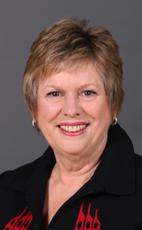I may ask for unanimous consent.
The highlight for me of the 39th Parliament was an opportunity to travel to Afghanistan with the defence committee to meet with the men and women who were serving in the Canadian Forces there. I was very impressed by their determination, skill, high level of training and their commitment to Canada and the job they were being asked to do.
The defence committee wrote a report on the war in Afghanistan. I, it will not be a surprise to most members, presented a dissenting opinion on that report. I believe that dissenting report is as valid today as it was two years ago when I wrote it.
I mention these achievements because too often Canadians think there is no effective role for an opposition member of Parliament. Some think members in opposition cannot achieve anything. It is very important for Canadians to know that all of us in this place can and do achieve real results for ordinary Canadians.
Canadians only see question period reflected in the news cycle, so they can be forgiven for thinking that Parliament is a nasty kind of sandlot filled with testosterone-driven egos. The truth is that all of us on both sides of the House have more in common than what divides us. We disagree on some fundamental policy issues, and that is an important part of our democratic system.
I hold my values as a social democrat very strongly, just as others in this place hold different views. I only wish that we could debate these differences with a bit more civility.
I urge all my colleagues to tone down the insults and abuse. What has been hurled back and forth across the floor has often lacked wit and wisdom. This place has become less civil over the past few years and I believe that this is evident in the increasing cynicism all of us hear from voters when we go door to door. It is, ultimately, dangerous for our democratic system.
There is one other issue I must draw attention to, and that is the glacial rate of progress toward gender equality in this place. The first woman MP, Agnes Macphail, was elected in 1921. This was a breakthrough for my grandmother's generation, my mother was not even born then.
Now in 2009, women represent just over 22% of the House of Commons. We have hovered around 20% for the last 15 years. At this rate of progress, and I have used the most up-to-date scientific calculations to determine this, it will take until December 4, 2100 to reach parity. That is darn near 100 years from now, and it is simply not good enough.
I urge all political parties in the House to get with it and nominate more women. After all, we are more than 50% of the population of our country. It is well past time. Our Parliament must more accurately reflect the Canadian population in every way.
I want to conclude with a few words of thanks. I am trying not to get emotional. I want to thank the Clerk, Audrey O'Brien, for all the assistance she has given me. It is a huge privilege for me to serve in a Parliament with the first woman to ever hold this prestigious and very important position.
I want to thank my staff in the constituency office, and all members know about this, because they are the front line people. They are the ones who face the sometimes angry constituents, the people who have issues around some of the government policies. They work so hard and I want thank them for all the work they have done for me over the years.
I want to thank to my staff on Parliament Hill, without whom I know I would not have been nearly as successful as I have been over the last few years.
I also want to thank some of the support people on the Hill: the drivers, the food services people, the postal workers, the messengers, the clerks, the interpreters, the security guards and the pages. All of these wonderful people make it possible for all of us to do our jobs. I know I could not have been nearly as effective without their help.
I want to thank my husband, Peter, who has sometimes taken abuse because of the road I have travelled and my choice to run for political office. I know at one point, while canvassing for me on the doorstep, one angry man said to him “What kind of man are you? How do you allow your wife to do such a thing?” I know that has been tough, and it has been hard to have me away. I appreciate his support all these years.
I want to thank my sons, Matthew, David and Stuart, their terrific partners and my seven very brilliant grandchildren.
There are some things I will not miss. I will not miss the weekly flights from B.C. I will not miss the jet lag. However, there is much I will miss here. I will miss my colleagues on both sides of the House. I will miss the work, especially at committee where great things are sometimes accomplished.
I wish all of my hon. colleagues in this place great wisdom and great compassion as they face the crisis that is affecting Canadians today. Finally, I want to thank the voters of New Westminster—Coquitlam for putting their faith and confidence in me.

